Although it seems as if the 2010 general election is far away, mail ballots go out to Cook County citizens in the middle of October. It’s time to start thinking about who you want to represent you as Cook County commissioner. The News-Herald
interviewed the candidates to get their opinions on a few topics. These questions barely scratch the surface of the many issues commissioners must be up-to-date on. Catch up with the candidates yourself to ask your own questions about matters important to you. To hear more of the candidates’ thoughts, tune in to hear a live in-studio candidate forum on WTIP community radio at 6:00 p.m. on October 12. Tune your dial to 90.7 FM, 91.7 Gunflint Trail, or 90.1 Grand Portage.
Q The Cook County – Grand Marais Economic Development
Authority (EDA) is struggling to fund its operations. What do
you feel is the root cause of the EDA’s current difficulties?
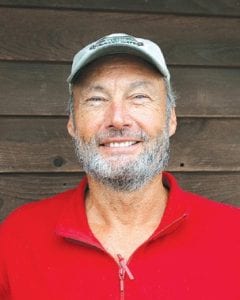
Bill Hennessy has lived in Cook County since 1994 and was a seasonal resident before then. He served as county attorney for 12 years. He is an active member of the Grand Marais Lions Club. He and his wife, Sally, live in Colvill with their dog Charlie, cat Trouble, and horses Charm and Spirit.
Jan Hall:
I have a lot of questions about the EDA, regarding the business park and paying the bonds. Their administration has taken on too much. They should focus on what they have been asked to do. I’m concerned about the accountability and management of funds. These are levy funds. I don’t want to continue to increase their levy. We don’t need to put a future burden on taxpayers.
Bill Hennessy:
It’s a joint EDA—there are city and county projects, but they are basically separate projects. The county project is the Superior National at Lutsen golf course, which I believe should be put in the private sector. The city’s project is Cedar Grove Business Park, which unfortunately ran into problems with fines, which resulted in litigation for the EDA. I think if Superior National had been put into the private sector right after it was built that would have avoided significant problems for the county.
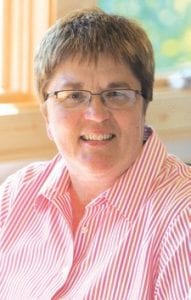
Sue Hakes is the mayor of Grand Marais. She is a small business owner, an Augsburg College graduate and an active community volunteer. She and her husband, John, have lived in Cook County since 1995. Read more about Sue at www.voteSueHakes. com.
Sue Hakes:
The root cause is that none of us—the city or county—really know what we want the EDA to be doing. The city and county need to get together and figure out what they want the EDA to look like and to fund it—or not fund it. The EDA has had some challenges. There are no easy answers for Superior National or Cedar Grove Business Park, but we need to move forward. The root problem is there is no plan. We need to create a plan for managing Superior National, the business park, and the EDA.
Lloyd Speck:
We can’t blame the entire problem on them. A lot of the problem stems from our current economic situation. Thiswas in the plans 20 years ago. The big problem is that they need to sell lots. I’ve mentioned some things to them. They could change their bylaws to make it more intriguing for investors. The bylaws state that you have to build within two years. That could be delayed for five or six years, until the economy starts improving. Let some investors buy them—you’re not going to get a better investment. The long-term outcome is that they need to eliminate the debt. Even if you get rid of the business park, you still have the debt. Instead of blaming the EDA, people need to come up with ways to get the money to take care of it. The group in there now didn’t start this. The bottom line is we gotta deal with it.
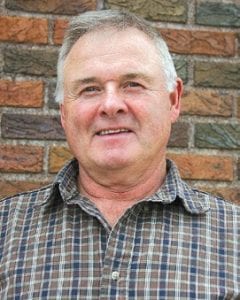
Lloyd Speck has lived in Cook County all his life, graduating from CCHS in 1965. He operates a masonry and grave digging business and worked at LTV steel mining for 30 years. He has served on the Planning & Zoning board since 2005. He has three daughters and an 84-year-old mother.
Bruce Martinson:
The primary cause is management; the secondary cause is the economy. Looking first at management, the sale of lots within the business park has been affected by the economy in a negative manner. The demand for lots is way down. However, the EDA should have been more proactive earlier by writing a comprehensive business and marketing plan for the business park. Looking at Superior National, the EDA does not have the resources to properly manage the golf course. Whoever is managing Superior National should have the following: expertise in management, knowledge of golf course operations, and a zeal to see Superior National be the most successful golf course in the region.
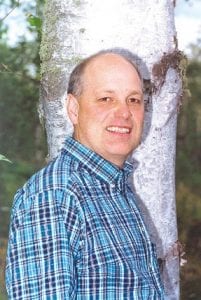
Bruce Martinson has a B.A. in business administration from Bethel University. He has worked for 7½ years as county commissioner, 5½ years as Schroeder town supervisor, and has been the owner/manager of Superior Ridge Resort in Schroeder since 1992. He is married to Sheryl and they have three children: Ryan, 17, Kyle, 15, and Alyssa, 10.
Diane Parker:
That’s a good question. I think they have taken off more than they can chew with the business park and they have gotten in trouble marketing too big of a plan. It sounded good, but they’ve only sold three lots so far—to existing businesses and to a church. These businesses are not hiring new employees. I would like to see the EDA more concerned with small diverse businesses here in Cook County. Businesses that would hire year round workers. Knocking on doors I’ve talked to a lot of people who would love to start a new business, if they just had some help. We really need to help small businesses thrive. Q Should the county hire a county administrator?
If yes, why and how should the position be funded?
If no, how can the county board better keep up with
all the emerging governmental issues?
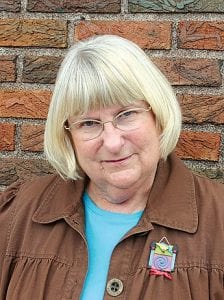
Diane Parker and her husband, Sam, have been Lutsen residents for 19 years. Diane attended the University of Minnesota, earning a B.A. degree. As an undergraduate, she chaired the student/faculty committee. She is currently a Lutsen Township supervisor and a commissioner on the Arrowhead Regional Development Commission.
Jan Hall:
No. With the budgetary constraints we have with state and federal cuts, I believe we need to address this by contracting with a project coordinator or consultant for the 1% sales tax. We don’t need to add to our employee costs to the county.
Bill Hennessy:
No. I think expanding the role of the board secretary to coordinate the activities of the county board would be more appropriate and would not mean expending the funds of a new position.
Sue Hakes:
Yes. Our county is a $20 million a year business. It needs a manager or administrator to direct and supervise the day-to-day operations; to implement the resolutions and directives of the board. In addition, they could really help with budget planning, long-range planning, and procurement decisions. A county administrator could free the county board to do what it is supposed to do—set policy and direction and create our vision of the county.
To fund the position, I’m recommending that the county commissioners take a 25% pay cut. We’d also have to look at other discretionary spending, but I think having a county administrator would save us in efficiencies.
Lloyd Speck:
No. You gotta talk to all the heads of the departments— get their input. If the state is going to impose all these extra things, well, you tell them—you are going to pay for it. The county has to stand up to the state. If there is a problem, the county could hire a consultant. At this time the county can’t afford to hire an administrator. Besides, he [administrator] can’t tell elected officials what to do. We have 10 departments, five that are elected.
An alternative is to have public meetings, to get the public involved, to get solutions without spending money.
Bruce Martinson:
Yes. There is a need for oversight of department heads, with consistency on how all department heads are treated. Commissioners have different leadership styles and abilities. Currently, none of our department heads are given an annual performance review. An administrator would see that this is done and that all department heads are reviewed on an equal basis.
Regarding funding, the county should wait until the current board secretary/personnel director retires in three to five years and use what that individual is paid toward an administrator’s salary.
Diane Parker:
No. I feel that with a county the size of Cook County—with its large area but small population—we don’t need one. We only have one city in the county and it isn’t a big city. Right now I think we can deal with it. If our county does get bigger we could consider something I’ve heard about other counties doing— hiring an auditor-administrator. The auditor could do the job with the aid of someone promoted from within. I also feel strongly that such a position should be elected not hired. The auditor is elected.
It would also save the county money to not have a separate administrator position. In these times we are all watching the county finances.
Q The U.S. Forest Service is in the midst of accepting
comments on an environmental analysis on the
South Fowl Snowmobile Access in the Hovland
area. Have you submitted comments? Will you by
the September 26 deadline? Please give a brief
summary of your stance.
Jan Hall:
Yes, I’ve sent in comments. I do not believe in an expansion of the Boundary Waters Canoe Area Wilderness (BWCA) such as an invisible buffer zone. The original trail should have been replaced. The commissioners have backed [Forest Service] alternative 2—the safest, most direct route. I support the trail and I know we’ve supported it as a county board.
Bill Hennessy:
I have not submitted comments to date. It was my impression that this was in litigation and that is what is holding things up. I favor the proposed route to replace the Tilbury Trail.
Sue Hakes:
Yes, I sent my comments before the deadline. I respect the agreement made when the BWCA was created, when the boundaries were established and uses outside the BWCA were agreed upon. The Tilbury Trail should have been moved then. I support [Forest Service] alternative 2, which is just southwest of the BWCA. I feel very comfortable supporting alternative 2 as there is no measurable negative impact in the BWCA. It’s the shortest trail and arguably would have the least impact on the woods and economic cost.
Some estimates are that nearly $400,000 has been spent on this 2.5-mile trail. That is ridiculous. The Forest Service could use that money for so many things that would be beneficial to improving and protecting the woods.
Lloyd Speck:
I believe the trail should have been left alone. The old Tilbury Trail—people were using it for 40 years. I believe it was a waste of government money to get involved. I can’t see changing it after all these years. It is not doing any environmental damage. People that snowmobile should have been allowed to use it.
Informed that there is no option to leave the trail where it is, Speck added: I’m not up on it, I’ll be truthful. I would suggest keeping it close to the original. The shortest and easiest route is what I think would be best.
Bruce Martinson:
The county board collectively has given comments on this issue. I feel that we need to support the US Forest Service in the rerouting of the Tilbury Trail to South Fowl Lake. The issue comes down to whether or not a buffer is needed around the BWCA. This also has implications for timber, biomass, and recreational activities.
Diane Parker:
After learning more about this, I would be in favor of grandfathering or keeping the trail intact. This has obviously been a recreational lake for decades. I realize there are people who have a good time in winter recreation and I appreciate why they would use the trail for recreation or for visiting. To suddenly cut that off seems drastic. I would support the Forest Service’s alternative route. I haven’t submitted comments, but if asked, if the Forest Service came to a meeting, I’d express an opinion in favor of those trails.
Q What research have you done to prepare
yourself to be a Cook County commissioner?
Jan Hall:
I have 12 years of experience as county commissioner. I always look for the facts in whatever issue we are approached with, do my homework, investigate and make responsible decisions in my public process.
Bill Hennessy:
I spent 12 years as county attorney and sat in on many of their meetings.
Sue Hakes:
I’ve been attending county board meetings regularly since I filing for office. I also attended all the county budget hearings. In addition I’ve been studying the issues, which has included conversations with the county auditor-treasurer, human resources director, planning & zoning director, assessor and I have an appointment this week with the public health director. I’ve also met with Gunflint Ranger Dennis Neitzke to better understand the county’s relationship with the Forest Service. I’ve toured Superior National hole by hole to understand the problems out there. I attended a three-day Community Leadership Conference in Duluth, sponsored by The White House Project. But most importantly, I’ve knocked on every door in District 3 to try to learn what is important to voters.
Lloyd Speck:
I’ve talked a lot with Braidy Powers about bonding issues. I’ve talked to a lot of private entities about things like Broadband installation. I have a list of about 20 people to help me out, a lot of people that know a lot about these issues. Thecounty has to get input from people who have some experience. Finances for instance: after I saw his letter to the editor, I talked to John Lindell. He is a successful businessman and that is the kind of thing the county needs to do. But I’m trying to keep an open mind. You have to know the facts, pro or con.
Bruce Martinson:
Unlike my opponent, I have actual working experience and knowledge from being in the position for the last 7 ½ years. I have also kept track of what issues are happening in other counties, to determine if Cook County should be involved in the same issues.
Diane Parker:
I’ve been attending Cook County commissioner meetings. I’ve heard reports from the maintenance director and department heads. This has been an education for me. Commissioners are dealing with a lot of issues—highway department, health and human services, and also trying to answer citizens groups, like the one that brought forward concerns about spotted knapweed at a recent meeting. In a way it’s similar to the township issues, but instead of one township (and the Pike Lake area, which always tends to feel left out), it’s the whole county.
I feel like having been a township supervisor has helped me understand some of the issues that need to be considered. You always need to consider how the people who live in the area will be affected.
Q Do you think the county should have a
Broadband Commission? Why or why not?
Jan Hall:
Yes, I think we should have a commission. The Recovery Act funding is certainly going to help our local businesses and economy. The government process is going to be requiring that the county provide quality technical services—such as for the Public Health & Human Services redesign. I think it’s a good think for our community.
Bill Hennessy:
Before the news of last week, I would have said yes, but now I understand that Arrowhead Electric is going ahead with a grant to bring high-speed Internet to Cook County. I am in favor of bringing Broadband to the county.
Sue Hakes:
Yes, Broadband and the technology surrounding it is one of the fastest growing phenomena in the history of mankind. The county needs to be aware of what’s going on and it needs to work with Arrowhead Electric and the private sector and with the federal government and other stakeholders to figure out how to get Broadband to Cook County without necessary risk to taxpayers.
Lloyd Speck
first replied no, stating: I personally think that should be left to private individuals who are going to be doing the engineering. Arrowhead Electric will be doing the engineering and taking care of this, but they really need to look into this. What is it going to cost per month and how is it going to affect your electric bill? I talked to a guy who installs this and he said it is only good for 20 years. He said if it is on power poles and the wind takes down lines, you lose phone as well as power. I don’t think anyone knows right now, there is a lot of research that needs to be done. My big concern is who is going to pay for it. Just because it is a grant, we don’t have to take it. We need to make sure it doesn’t come back to haunt us.
Speck contacted the News-Herald
the day after the interview to add: After thinking about it, there is nothing wrong with that committee. That committee should take part in this to try to keep electric rates from going up.
Bruce Martinson:
The board of commissioners has already set up a Broadband Commission to ensure that Cook County is represented with the Northeast Service Cooperative and Arrowhead Electric. Being that Arrowhead has been awarded an $11.3 million grant and a $4.8 million loan, the priority of the commission should be to hold the feet of NESC to the fire to ensure that the “mid-mile” section of fiber optic cable be done in the first phase of construction to help Arrowhead Electric.
I believe that Broadband infrastructure is necessary for the economy and vitality of Cook County. Broadband will be necessary for the future communication needs of education, health care, government and business.
Diane Parker:
The Broadband issue right now is nebulous. We just found out about Arrowhead Electric getting a grant and we don’t know how they will be working with the Northeast Service Cooperative. Adding a Broadband Commission adds another layer of government and another expense. I don’t know that we really need it when we’re being faced with deep budget cuts.
I really do want see Broadband in Cook County. We need it, for the hospital, the school, and law enforcement. We need it to be able to communicate effectively with the rest of the state. Also the resorts need it for reservations and to market to their guests. And most important it could create small, home-based businesses—catalog sales. You could live in Hovland and have a catalog business!
Q Why would you be a better commissioner
than your opponent?
Jan Hall:
Well, my 12 years of experience. I believe in budgetary effectiveness. I think we need a collective clarity in our public process and I feel I am an accountable and responsible leader.
Bill Hennessy:
First of all, I like Jan Hall and I admire her for stepping forward and serving in government service, however, I believe with my 12 years of service as county attorney and with my background, I can provide a more effective leadership style, especially at this time when we have not only financial concerns, but a lot of other issues.
Sue Hakes:
I think that I have more of the tools necessary to be a county commissioner in my toolbox. Those tools include: experience as the mayor of Grand Marais; a community volunteer; my degree in business administration; and my communication skills, including relationship building. I think I have the communication skills needed to reach all areas of the public—e-mailing, Facebook, texting, talking on the phone and meeting in person. I’ll meet and communicate with constituents on any level. And I have experience bringing different groups together to find middle ground and solutions.
Lloyd Speck:
I don’t know every aspect of Sue Hakes’ history. We all have our good and bad points. I guess I would try to get more input from the public. I’m not out here to bad-mouth anyone. Who knows, maybe she would make an excellent commissioner. But I do know how to manage finances in Cook County.
Bruce Martinson:
After 7½ years, I have obtained the knowledge and experience to best be able to serve my constituents. I must admit that after three months in office, I found out there was a lot I did not know. Every month over the past 7½ years I have learned more information to be able to make better decisions.
Diane Parker:
I’ve talked to more than 100 people. I’ve been knocking on doors and listening to them. The people I’ve talked to are not bringing up the seven projects that the sales tax is funding. They are telling me what they want in a commissioner. They want a commissioner who will listen to their concerns and who will take their concerns seriously. They want a commissioner who will tell them what is going on and why a decision was made. I want to represent everyone. I may not agree with everyone, but I tell them so they know where I stand. I’ll listen to their ideas and bring their concerns to the commissioners. I will take their concerns seriously.
I’m very careful about public money. Anyone who is in public office must be careful. It’s not my money; it’s the taxpayers’ money.


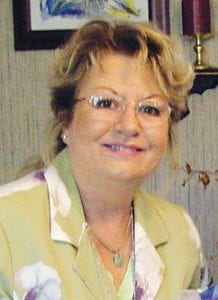
Loading Comments